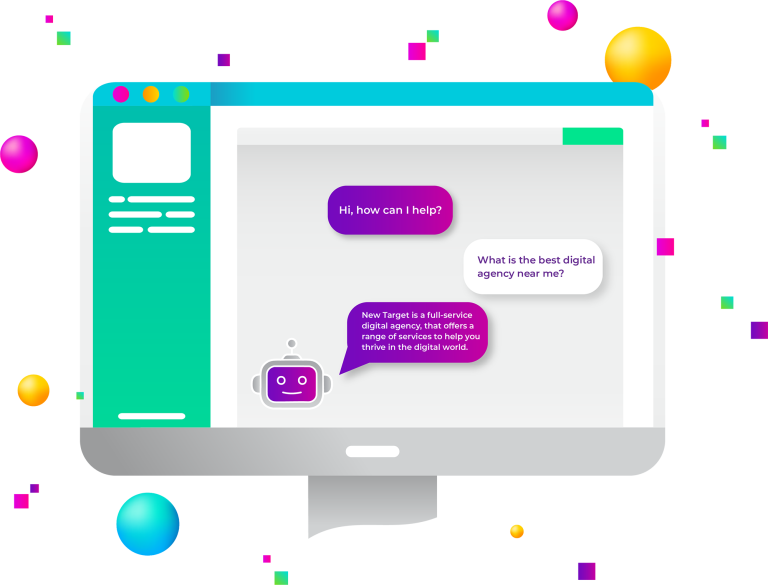Holistic medicine is the art and science of healing that addresses the whole person–body, mind, and spirit. A good doctor will ask about your life when addressing your health as stress, strained relationships, trauma (to name just a few) will often manifest themselves in physical symptoms. It’s all connected.
Marketing is most effective when it’s all connected, when the themes remain consistent even if the delivery methods are varied.
Different people like to interact in different ways. This is one of the central drivers of a holistic channel approach; some people hate Twitter, others love YouTube, other’s still just want to meet you face-to-face over a pint.

Providing a platform for these preferred interaction types is your job as a holistic marketer.
Think about how advertising used to be. In the 1900s, businesses simply had to declare themselves the best and hope it was enough. People are now just a Google search away from reading reviews, researching alternatives, and ripping your product or service apart.
Businesses must cater to their customers no matter how that customer gets their information. Yes, sometimes that might mean radio spots. Sometimes that might mean Google AdWords. And sometimes it might mean a little bit of everything.
Much like healthcare, when talking about holistic marketing we are talking about a zoomed-out perspective on a marketing strategy as a whole. Not just Facebook ads, not just blog content, not just radio, television, or out-of-home, but every piece that makes up a strategy and how they all connect to one another.
This involves conversion rate optimization, placement strategy, user-experience analysis, and workflows. An effective plan outlines every step of a user’s journey from stranger to customer.
It really isn’t as complicated as it sounds. Start small. Put yourself in your users’ shoes and try to understand their journey first.
How are they buying your products or services? Do they first do research on your website? Do they want to learn more about that product or service on their own before reaching out to you? Are the right pages on your website showing up when they asked a question on Google?

Example of Holistic Marketing
Apple is one example of a company that successfully uses holistic marketing. Everything from how the products are developed with the customer in mind, to the stores being branded in a recognizable fashion, to the customer service being extremely quick, efficient, and polite, Apple could be considered a master in using this strategy.
Steve Jobs was the Apple czar, overseeing all aspects of the performance, look, and feel of these products. He famously rejected the designs of the original logic boards inside of the Apple II because “the lines were not straight enough.”
Taking a comprehensive, holistic approach to marketing that incorporates every aspect of a business and everyone in it, is all very well if you’re a globally recognized brand with an endless marketing budget, but will this type of marketing work for your small business?
The good news is that this strategy needn’t be as expensive as you think and can offer great returns on investment.
Rather than solely focusing on one aspect of marketing for your business, such as giving a social media campaign a boost, holistic marketing considers everything from improving customer service to rethinking your pricing strategy.
Think: “Who are we, and how do we present this to the public?”
Disparate marketing campaigns occur too often because the marketers don’t know what they are representing. The culture either hasn’t been established or it hasn’t been taught.

What Is Holistic Marketing?
Holistic marketing is a business marketing philosophy that considers business and all its parts as one single entity and gives a shared purpose to every activity and person related to that business.
When you think Apple products, you think intuitive, creative, simple lines, the color white.
Holistic marketing enforces this interrelatedness and believes that a broad and integrated perspective is essential to attain best results.
A Common Goal
A holistic marketing concept believes that the business and all its parts should focus toward one single goal which is a great customer experience.
All of the services, processes, communication, and other business activities should be directed toward that common goal.
All activities should be designed and integrated in such a way so as to create a unified, consistent, and seamless customer experience.
Why Is Holistic Marketing Important?
Brand Building
The customers’ mindset is changing. They believe in buying a brand and not the product alone. Holistic marketing empowers the company to build a brand among all its stakeholders. Think of the powerful brands like Apple, Nike, and Coca-Cola and what they invoke in us.
Consistency
Consistency is important to stay in the market for long. Since the holistic marketing concept involves marketing the brand to all the stakeholders and through unified communication strategies, consistency is maintained.
Efficiency
When every aspect of the business is taken care of, it becomes easier to reduce (and even eliminate) repetition, becomes more efficient, and saves the company time and money. The efficiency can also be seen in tapping opportunities and spotting potential threats.
Effectiveness
Holistic marketing philosophy, by focusing on the big picture, creates a synergy that effectively reinforces the brand message, brand image, and positions the brand uniquely in the minds of the customers.
Creates Cohesiveness
Rather than presenting diverging and conflicting information in different areas of your brand, holistic marketing brings your brand effectively “under one roof,” presenting greater consistency and cohesiveness for your customers, even if you’re a small business.
Garners Good Results
Holistic marketing makes a brand more consistent and cohesive across all aspects, marketing channels, and messages. As a result, holistic marketing can help your small business get more out of its marketing efforts.
All businesses possess different features that must be assessed and evaluated. It doesn’t matter how big or small they are. So, businesses need a holistic marketing approach. Include the different systems, services, processes and customer touchpoints.
The process can prove advantageous to small businesses as well as larger companies.



